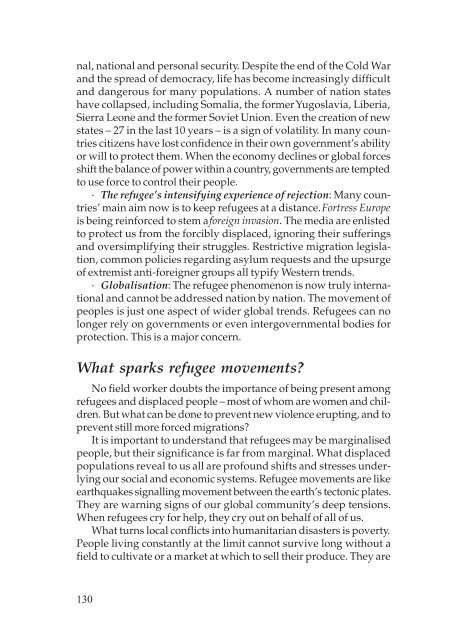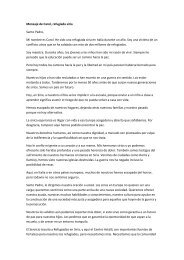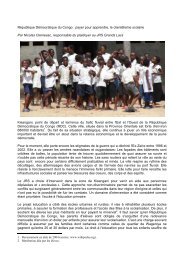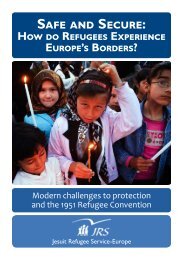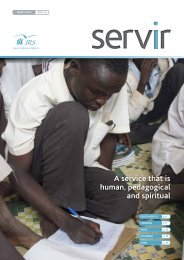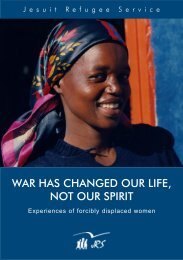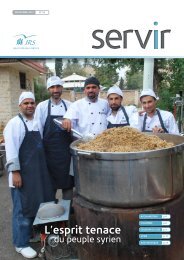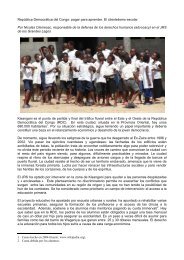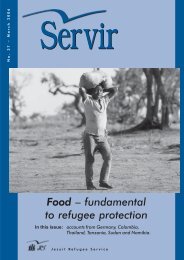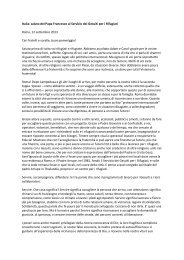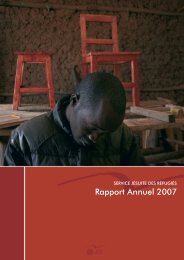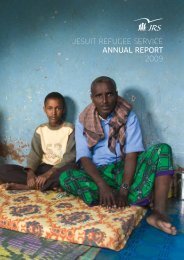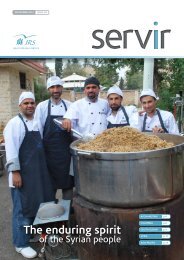EVERYBODY'S CHALLENGE - Jesuit Refugee Service | USA
EVERYBODY'S CHALLENGE - Jesuit Refugee Service | USA
EVERYBODY'S CHALLENGE - Jesuit Refugee Service | USA
Create successful ePaper yourself
Turn your PDF publications into a flip-book with our unique Google optimized e-Paper software.
nal, national and personal security. Despite the end of the Cold War<br />
and the spread of democracy, life has become increasingly difficult<br />
and dangerous for many populations. A number of nation states<br />
have collapsed, including Somalia, the former Yugoslavia, Liberia,<br />
Sierra Leone and the former Soviet Union. Even the creation of new<br />
states – 27 in the last 10 years – is a sign of volatility. In many countries<br />
citizens have lost confidence in their own government’s ability<br />
or will to protect them. When the economy declines or global forces<br />
shift the balance of power within a country, governments are tempted<br />
to use force to control their people.<br />
· The refugee’s intensifying experience of rejection: Many countries’<br />
main aim now is to keep refugees at a distance. Fortress Europe<br />
is being reinforced to stem a foreign invasion. The media are enlisted<br />
to protect us from the forcibly displaced, ignoring their sufferings<br />
and oversimplifying their struggles. Restrictive migration legislation,<br />
common policies regarding asylum requests and the upsurge<br />
of extremist anti-foreigner groups all typify Western trends.<br />
· Globalisation: The refugee phenomenon is now truly international<br />
and cannot be addressed nation by nation. The movement of<br />
peoples is just one aspect of wider global trends. <strong>Refugee</strong>s can no<br />
longer rely on governments or even intergovernmental bodies for<br />
protection. This is a major concern.<br />
What sparks refugee movements?<br />
No field worker doubts the importance of being present among<br />
refugees and displaced people – most of whom are women and children.<br />
But what can be done to prevent new violence erupting, and to<br />
prevent still more forced migrations?<br />
It is important to understand that refugees may be marginalised<br />
people, but their significance is far from marginal. What displaced<br />
populations reveal to us all are profound shifts and stresses underlying<br />
our social and economic systems. <strong>Refugee</strong> movements are like<br />
earthquakes signalling movement between the earth’s tectonic plates.<br />
They are warning signs of our global community’s deep tensions.<br />
When refugees cry for help, they cry out on behalf of all of us.<br />
What turns local conflicts into humanitarian disasters is poverty.<br />
People living constantly at the limit cannot survive long without a<br />
field to cultivate or a market at which to sell their produce. They are<br />
130


